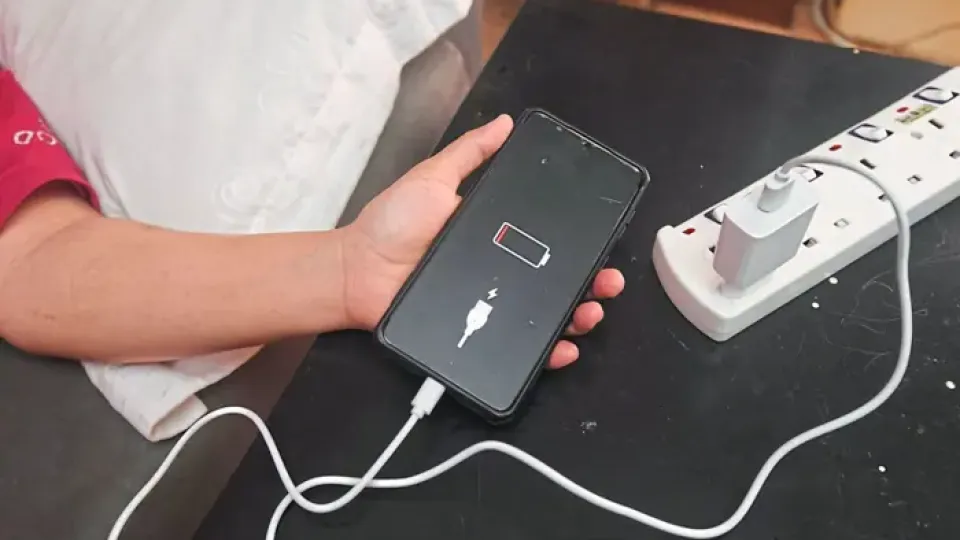November 5, 2024
PETALING JAYA – As authorities investigate the death of a teenager while charging his handphone on a bus, an expert says that charging ports in vehicles for long distance travel must be certified safe.
Universiti Putra Malaysia Assoc Prof Law Teik Hua from UPM’s Road Safety Research Centre said that although such a death is a rare incident, it is timely that charging ports in express buses are included as part of the vehicle inspection checklist by Puspakom – the current sole provider of land vehicle inspection in the country.
The Transport Ministry had confirmed yesterday that electrical components of vehicles are not inspected.
ALSO READ: Charging points in buses not subjected to safety inspection
On Saturday, Mohamad Nur Asymawi Jasmadi, 18, was found dead on an express bus at Penang Sentral with burnt marks on his fingers suspected to be caused by electric shock while charging his handphone using a socket on the bus.
“There must be a guideline to check these charging ports on long distance buses as we are talking about the safety of many passengers.
“On top of the checks by Puspakom, Sirim QAS International should ensure all electrical and electronic goods fitted by the bus builder in roadworthy express buses are approved by Sirim and ST to ensure public safety,” said Law.
(The Sirim certification verifies products that meet the relevant Malaysian Standards. ST refers to Suruhanjaya Tenaga or the Energy Commission.)
Law said advancement in battery-powered portable devices has led to an increase in the number of USB ports in automobiles, allowing users to easily charge their devices while on the go.
He pointed out that due to such a trend, automotive integrated circuits are required to meet the Automotive Safety Integrity Level (ASIL) standards, which is a risk classification system defined by ISO26262, a process for managing and reducing risks associated with electrical and electronic systems.
ALSO READ: Close encounters with the overheating and melting kind
There are four ASIL levels, A to D, where A represents the lowest degree and D is the highest degree of automotive hazard. Critical systems such as airbags, power steering and anti-lock brakes are designed with ASIL-D standards. USB applications in automobiles primarily focus on portable device charging.
(Typically, USB chargers are not designed to ASIL standards as they do not directly impact critical systems.)
Law explained that although this has to be studied much in Malaysia, it is known that thermal shutdown protection limits the temperature the device is allowed to reach before forced shutdown and protects the device and user in the event of overheating.
Pan Malaysian Bus Operators Association president Datuk Mohamad Ashfar Ali said that a knee-jerk solution should not be the answer.
“When a bus is built, the bus builder will submit it to the Road Transport Department which will then issue a licence. After that, the Land Public Transport Agency (Apad) will approve a permit. Every six months, the bus will be sent for Puspakom inspection.
“Not all express buses come fitted with charging ports or sockets. If they do have an inspection of such ports or sockets that are not in the inspection checklist, it is now up to the Transport Ministry to include it in. This is because only the ministry can expand the checklist.
“Although the fatal electrocution is a rare case, we have to work together to ensure there is no repeat. For us bus operators, we would like the authorities to conclude their investigations before we decide on the solutions.
“We do not want knee-jerk solutions as we want appropriate solutions,” said Ashfar, when contacted.
Meanwhile, Deputy Domestic Trade and Cost of Living Minister Fuziah Salleh said there is no specific regulations with regards to selling only Sirim-approved electrical and electronic goods, including handphone charging cables.
“The Domestic Trade and Cost of Living Ministry does not have specific regulations regarding the sale of products that use Sirim certification, unless there are complaints about the misuse of fake Sirim approvals.
“In such cases, an investigation can be conducted under the Trade Description Act 2011.
“If it involves electrical goods, generally, it falls under the jurisdiction of ST to enforce approval for electrical products. Therefore, if any issues are found during spot checks, it’s necessary to verify with ST,” said Fuziah, when contacted.
ST said it is conducting an investigation in accordance with the provisions under the Electricity Supply Act 1990 and the Electricity Regulations 1994.
“If negligence or wrongdoing is found on the part of any relevant parties, legal action will be taken. Additionally, those responsible and the company involved will also be summoned to assist in the investigation,” said ST in a statement to The Star.

